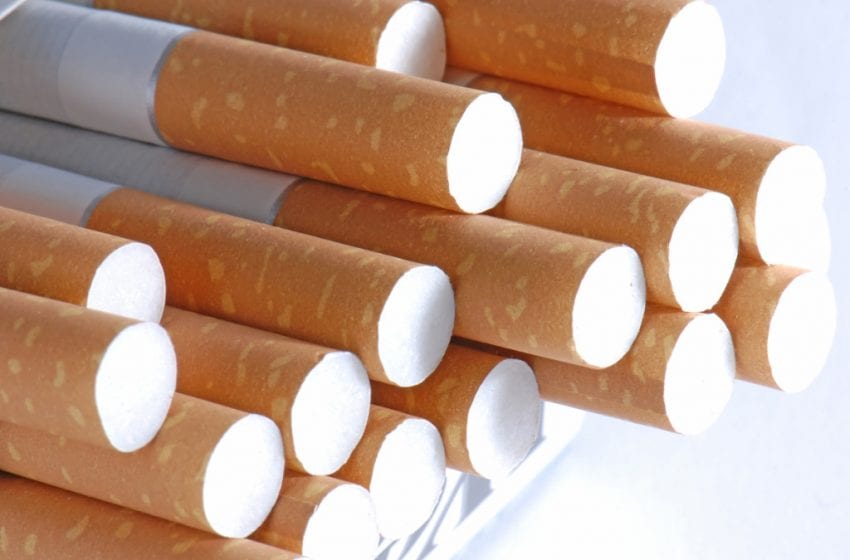Azerbaijan’s State Customs Committee is making a number of proposals aimed at strengthening the fight against the illegal import and sale of cigarettes, according to a Trend News Agency story quoting the chairman of the State Customs Committee Aydin Aliyev.
However, the only proposal described in the story relates to restricting legal imports rather than clamping down on illegal activities.
Aliyev said the proposals envisaged restricting the quantity of cigarettes that citizens could import for their personal use to one carton of cigarettes once a month.
Current rules are said to allow the import of three cartons per person.
Speaking at a press conference in Baku on January 19, Aliyev said the new proposals would be discussed during the spring session of parliament.
Category: Regulation

Import limit proposed

Retail limits proposed
A bill introduced into the Hawaii Senate on Friday is seeking to keep new tobacco and electronic-cigarette stores from opening near schools, public parks, or public housing complexes, according to a story by Patrick Lagreid for HalfWheel.
Lagreid said the bill had been introduced by six state senators.
If passed, it would require any ‘new tobacco specialty shop’ to be at least 750 feet from the designated places.
Violators would face a fine of $500 for the first day of offense, and a fine of between $500 and $2,000 for subsequent days of offense.
The bill has not been referred to a committee, but if it were to pass, the ban would take effect on January 1, 2019.
Few fines for smokers
A Hungarian law banning tobacco smoking at public transport stops is being seen as a failure, according to a story in the Budapest Business Journal citing a Magyar Idők report.
In five years, fewer than 500 fines have been imposed for breaking this law.
The law, passed in 2012, bans smoking at public transport bus and tram stops, in pedestrian underpasses and on train platforms.
But this had not seemed to have driven smokers away, mostly because there were not enough personnel in public administration to enforce the law.
In 2013, 3,150 checks were carried out and 43 fines imposed; in 2014, 2,288 checks were carried out and 102 fines imposed; in 2015, 946 checks were carried out and 94 fines imposed; in 2016, 8,233 checks were carried out and 140 fines imposed; and last year, 754 checks were carried out and 111 fines imposed.
Snus challenge imminent
A legal challenge against the EU’s ban on snus outside Sweden is due to be heard at the European Court of Justice on January 25, according to a note posted on the website of the New Nicotine Alliance (NNA).
The case was originally brought by Swedish Match, but the NNA, which is a charitable organization concerned with improving public health through a greater understanding of new, risk-reduced nicotine products and their uses, joined the case because it concerned the health of smokers in the EU.
‘It is not about markets and commerce, but about the right to be able to choose a safer alternative to smoking,’ the NNA said in its note. ‘For the NNA this case is about whether some 320,000 premature deaths from smoking can be saved in future years, as detailed by Dr Lars Ramström in his statement to the court.’ Since 1990, Ramström has been director of the Institute for Tobacco Studies, Stockholm, Sweden, an independent research institute focusing on the epidemiology of tobacco use and related policy matters.
The NNA says that the core of its case is that the ban on snus is both disproportionate and contrary to the right to health. ‘There is no need for the ban, and the ban, if upheld, will continue to contribute to excess mortality from smoking in Europe,’ it said.
‘This is the first time that a “right to health” argument has been used to challenge a bad tobacco law: we argue that the Court needs to examine the compatibility of the Tobacco Products Directive with both the EU Charter of Fundamental Rights and the harm reduction obligation under the [World Tobacco Organization’s] Framework Convention on Tobacco Control.’
Last year the ECJ asked all EU states and the EU Institutions to comment on the case, and it received five responses.
On January 25, all parties to the case will be given 15 minutes or so to expand on their arguments.
After the hearing, the Advocate General assigned to the case is due to examine the arguments and evidence, and to come up with a preliminary opinion for the court.
The court is due to reach a final decision later this year.
The NNA note is at: https://nnalliance.org/blog/223-campaign-to-legalise-snus-update-on-the-ecj-case.
Russians hit by health bug
The incidence of tobacco smoking has dropped significantly in Russia during the past five years, according to a story in The Moscow Times citing a report in the Kommersant business daily.
The number of adult smokers is said to have fallen 22 percent over five years, while there has been a ‘threefold decrease in smoking among minors’.
“Looking back at the past 5-7 years, we managed to partially overcome bad habits like smoking thanks to a progressive law against tobacco smoking,” Health Minister Veronika Skvortsova was quoted as saying.
At the same time, Skvortsova was able to report that Russia’s alcohol consumption had dropped by 80 percent during the past five years.
The Times story said that the latest World Health Organization figures put Russia’s alcohol consumption below that of France and Germany, though it wasn’t clear whether the figures compared total consumptions or per capita consumptions.
The consumer-rights watchdog, Rospotrebnadzor, was said to have credited new minimum price laws, advertising bans and sales restrictions for the drop in alcohol consumption.
And while drinking and smoking are going down, exercising is going up. About 40 percent more Russians are said to have become involved in sports during the past five years.
Lung-cancer data released
Health officials in England have defended a decision to hand over data on National Health Service cancer patients to a US firm linked to tobacco companies, according to a Press Association story.
Public Health England (PHE) said that it handed over the information after the statistical analysis firm William E Wecker submitted a data request under the Freedom of Information Act.
The health body said that it was legally bound to comply. It added that patient data was anonymised.
The comments were made after the Daily Telegraph revealed that data covering 179,040 lung tumours diagnosed between 2009 and 2013 – every case in England over the four-year period – was handed over to the data firm.
In its data request, the firm said it wanted to evaluate lung cancer trends in Australia, Ireland, the UK and the US.
The Press Association said William E Wecker described on its website its association with a number of tobacco companies, including Philip Morris International. But it is linked also to other bodies such as the American Medical Association.
‘William E Wecker Associates has established a track record of creative and effective applications of statistical and mathematical analysis to questions arising in regulation and litigation, in business and government,’ the company stated on its website.
The Press Association story is at: https://www.timesofmalta.com/articles/view/20180115/health-fitness/health-officials-defend-handing-cancer-data-to-tobacco-linked-firm.668048
Fewer smokers in Beijing
There were 3.99 million smokers in Beijing at the end of 2017, 200,000 fewer than there were before the city’s smoking ban came into force eighteen months earlier, according to a Xinhua News Agency story quoting the Municipal Health and Family Planning Commission.
However, the story did not say whether the fall in the incidence of smoking had been caused by the smoking ban; or by other factors, such as price increases.
Beijing implemented what has been described as the ‘strictest smoking ban in history’ on June 1, 2015, prohibiting smoking in indoor public places and workplaces, and on public transportation.
At the same time, medical institutes in Beijing offered smoking cessation services to more than 7.4 million people, while 61 hospitals in the city opened smoking cessation clinics.
In 2017, 95 percent of inspected public places were found to be operating in accordance with the no-smoking regulation, up from 77 percent in the middle of 2015.
Medical institutions, schools and hotels had the best implementation records. Internet cafes and KTVs [karaoke bars] tended to violate the regulation most frequently.
“We will intensify supervision in 2018 and continue to conduct undercover and targeted inspections,” said the Commission’s Liu Zejun. “We also encourage the public to report to us if they see any violation.”
More than 14,800 volunteers were said to have given 77,000 hours of their time to assist in dealing with 4,547 smoking-related complaints in Beijing during 2017.
Argileh crackdown in Jordan
Jordan’s Health Ministry has begun checking that licensed restaurants and cafés are complying with regulations governing the serving of argileh (shisha), according to a story in The Jordan Times.
Under regulations announced in April 2014, restaurants and cafés may serve food but not argileh; they may serve argileh but not food; or they may operate two separate areas, one for serving food and the other for serving argileh.
The regulation bans serving argileh to minors, Health Ministry spokesperson Hatem Azrui was said to have told the Times.
The government, however, granted a period of grace until December 31, 2017, for facilities that weren’t able to meet the requirements immediately.
So the government’s crackdown started on January 1, and any facilities that violate the regulations will be subject to penalties that range between three to six months imprisonment [presumably for the operator of the business] and a fine of no less than JD3,000 and no more than JD6,000. The health minister has the authority to close facilities.
According to the law, smoking is prohibited in hospitals, healthcare centers, schools, cinemas, theatres, libraries, museums, public and non-governmental buildings, public transport vehicles, airports, closed playgrounds, lecture halls and any other location as determined by the health minister.
Control strategy launched
Nepal’s Ministry of Health has launched the Tobacco Products Control Convention Strategy – 2030 with the objective of reducing tobacco consumption in the long term, according to a story in The Himalayan Times.
The Times said it was believed that the strategy would provide guidelines for the development and implementation of tobacco control programs by policy makers, service providers, related government ministries and bodies, and national and international non-governmental organizations.
The strategy, which is said to incorporate various tobacco-control measures, such as monitoring tobacco consumption, declaring more public places smoke-free, and motivating people to give up tobacco, was prepared by the ministry’s National Health Education, Information and Communications Center. It was launched on Friday by the Minister for Health Deepak Bohara during an event organized by the Center in Kathmandu.
Addressing the event, Bohara expressed confidence that the strategy would be a milestone in controlling tobacco products. He said there was a need for inter-ministry co-ordination for the implementation of the strategy at local, provincial and federal levels.
Nepal signed up to the World Health Organization’s Framework Convention on Tobacco Control on December 3, 2003, and ratified it on November 7, 2006.
In principle yes; but…
There are, as a matter of principle, no limits on the number of duty-paid cigarettes a private individual can buy and transport with him when traveling between EU countries, the EU Commission has said in answer to two questions by the Lithuanian member of the European Parliament, Bronis Ropė.
But it perhaps should have added that it would be best for the individual if he traveled with a lawyer.
In a preamble to his questions, Ropė said he had been informed that a Lithuanian citizen traveling in his own car through Germany on August 10, 2017, was asked to pay customs duty on 10 cartons of cigarettes – excisable goods legally acquired in Lithuania that he was carrying in his car.
The driver’s wife and young child were also traveling in the car.
Ropė said the German officers, of the Hauptzollamt Magdeburg customs office, had drawn up report No K1/365/2017.
He then asked the Commission:- Whether the German customs officers were entitled to request payment of customs duty for excisable goods that were legally acquired in the EU and were in transit through the territory of Germany; and
- If so, could the Commission please specify the legal grounds pursuant to which German officers are entitled to request the payment of such duties?
In its reply, the Commission said there were, as a matter of principle, no limits on the number of duty-paid cigarettes a private individual could buy and transport with him when traveling between EU countries.
‘Excise duty is due in the member state of purchase and not in the member state of destination, provided that the cigarettes are for the traveler’s own use and are transported by the traveler.
‘To determine whether these products are for the traveler’s own use, member states have to take all the following factors into account:
* The commercial status of the holder of the products and the reasons for holding them;
* The place where the products are located or, if appropriate, the mode of transport used;
* Any document relating to the products;
* The nature of the products;
* The quantity of the products.
‘With regards the last element, EU legislation provides guide levels (800 cigarettes), which member state authorities may use in certain situations. However, these guide levels are indicative only.’
The Commission said it could not comment on the specific case raised by Ropė.
However, it added, EU citizens had access to the competent national courts if they considered that measures taken were unjustified or infringed EU law.










